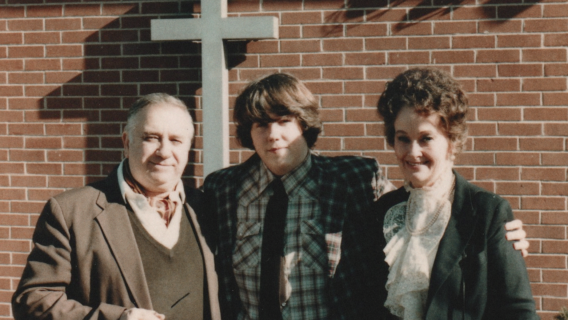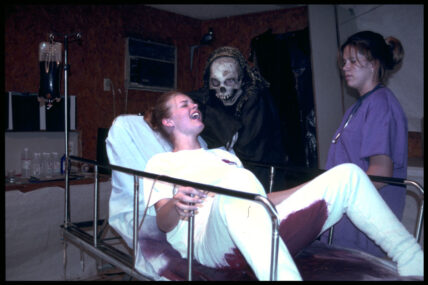
I am very much a skeptic. I am not religious, and it’s my personal belief that most of the tenets of religion were likely established to keep people compliant, give followers a sense of purpose, and reassure us that death isn’t the end. My complete lack of faith certainly informed my experience watching The Devil on Trial. But aside from that, I couldn’t help but think the doc is fairly slanted. With all that said, I still found that the picture has entertainment value and does serve as a somewhat compelling retelling of a harrowing true crime case.
Whether you are a believer, a skeptic, or somewhere in between, you’re likely to find the case profiled within Chris Holt’s The Devil on Trial fascinating, as it is easily one of the most sensational court cases of all time. In fact, it would eventually go on to inspire the third installment in The Conjuring series.
The doc profiles Arne Cheyenne Johnson, who at age 19, murdered his landlord, Alan Bono. Johnson’s defense was that he became possessed by a demon. That’s quite the claim to make in a court of law. And, not surprisingly, this case marks the first time that particular strategy was used in a US trial.
Johnson alleges that he was not in control of his faculties because he was overtaken by a demon when observing the exorcism of his girlfriend Debbie Glatzel’s younger brother, David. David had been exhibiting strange and inexplicable behavior for a period of time and was eventually the subject of an exorcism. Ed and Lorraine Warren were on the scene to assist. They had become household names after being hurled into the public eye during the Amityville case in 1975. And that led the Glatzel family to seek the assistance of the famed demonologists.

For some, the involvement of Ed and Lorraine Warren may lend an air of authenticity to the proceedings. But I am inherently skeptical of any case with which they were involved. I don’t believe they were necessarily bad people. But I do have a sneaking suspicion that the pair was prone to assigning supernatural significance to everyday occurrences that may have been better explained by science.
I suspect that, more likely than not, the inciting event was fueled by alcohol consumption, jealousy over Bono’s relationship with Debbie, and possibly a psychotic break. However, the majority of parties involved maintain that the murder was the result of demonic possession, pure and simple.
Though I don’t buy into the supernatural aspect of the case being profiled, I still found it quite disturbing to listen to the audio recordings of young David’s alleged possession. Whatever exactly happened, there’s no denying that David was deeply disturbed at the time of his reported possession and that Arne Cheyenne Johnson was also in a dark place when he killed Alan Bono.
While I found the doc to be entertaining, I was put off by the lack of balance. A documentary of this ilk should present the viewer with a well-rounded assessment and allow them to draw their own conclusions. However, we don’t get enough of that here. We get the story, as recounted by the family that lived it, including Carl Glatzel, the one family member who refutes the claims of his kin. But we don’t get anything in the way of a scientific perspective speaking to possible causes for the sensational events chronicled within. With a single family member refuting the claims of everyone else profiled, it doesn’t really read as balanced reporting. Additionally, Carl’s involvement is relegated to the final 25 minutes of the film and is essentially treated as a footnote.
I’m also a bit surprised that the doc neglects to provide more unbiased reporting on The Warrens. They have a controversial history, at best. But we really only see them in the most flattering light. We don’t get any context on the controversy related to their involvement in the Amityville case, and Carl is the only one to say anything remotely critical of the Warrens. A psychiatrist would have been a great addition to the lineup of talking heads. Someone who could speak from a perspective of clinical authority and provide a counterbalance to the sensational assessments of Lorraine and Ed Warren.
All things considered, The Devil on Trial isn’t unbiased reporting and it isn’t a great documentary. However, it’s an entertaining profile of a history-making case that true crime enthusiasts and those fascinated by the paranormal should check out with expectations in check. And if you’re interested in evaluating the flick for yourself, you can do exactly that. The Devil on Trial is now streaming on Netflix.
Categorized: Editorials

